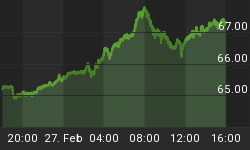On 12 September Iran brought its first nuclear power plant in Bushehr online, connecting it to the country's electrical grid. Iranian officials at the opening ceremony said that the 1,000 megawatt plant has begun generating electricity at 40 percent of its capacity and will reach full capacity by the year's end following further testing.
Quite aside from demonstrating Iran's touching post-Fukushima faith in nuclear energy despite being a seismically active country, Bushehr represents a Rorschach test of sorts for all the fears and anxieties in the Middle East, in which everyone looking at the facility has his preconceptions reaffirmed.
"Axis of Evil" charter member Iran insists that Bushehr represents the government's determination to husband is vast oil reserves by promoting other energy sources, as its economy has hammered by more than three decades of U.S.-led sanctions.
Iran has been subjected to increasingly militant rhetoric from both Tel Aviv and Washington over its civilian nuclear energy program, with thinly veiled threats of possible military action if Tehran does not abandon its efforts, even though they are completely complaint under the terms of the Nuclear Non-Proliferation Treaty (NPT), which Iran has signed and which Tehran pointedly underlines, it's nemesis and harshest critic Israel has not.
Russia signed a $1 billion contract in 1995 for building the Bushehr plant and last month the country's Rosatom supplied the power station's uranium fuel. The United States urged Russia to delay the startup until Iran proves that it's not developing nuclear weapons, to no avail, as Moscow replied that that the Bushehr project has been closely supervised by the U.N.'s International Atomic Energy Agency.
Russian officials said that Iran had signed a pledge to ship all the spent uranium fuel from Bushehr back to Russia for reprocessing, excluding the possibility that any of it could used to make nuclear weapons.
Russia has insisted that the Bushehr project is essential for persuading Iran to cooperate with the IAEA and fulfill its obligations under international nuclear nonproliferation agreements.
Many aspects of Iran's uranium enrichment activities trouble the international community, so much so that in June the U.N. Security Council slapped a fourth set of sanctions on Iran over its nuclear program. The sanctions followed Iran's refusal to halt uranium enrichment, a process which can be used for the production of fuel for power plants when uranium is enriched to a level of 3-4 percent purity, as well as material for nuclear warheads if enriched to more 90 percent purity. Equally worrying is the fact that Iran received its centrifuge designs from Pakistan, the world's first Muslim nuclear state, which developed its own nuclear weapons in response to India's weapon program.
Iran continues to insist that its nuclear program is purely peaceful, aimed at producing nuclear energy, but the United States and Israel in particular believe that Tehran's real goal is to produce atomic weaponry.
And Israel has more reason than most to be concerned, as it developed its own nuclear weapons in the 1950s and 1960s at its Dimona reactor by hoodwinking the IAEA, a fact finally proven in 1986 by Israeli whistleblower Mordechai Vanunu, who leaked details of the program to Britain's Sunday Times and was subsequently kidnapped back to Israel, tried on charges of treason and espionage and subsequently served an 18-year prison sentence. If any nation has a concept of how to covertly develop nuclear weaponry, it is Israel.
So, Bushehr finally comes down to seeing what you want to see there.
That said, international law is not, despite the efforts of the Bush 2 administration, the issue of a nation's unilaterally "cherry picking" through intelligence for material supporting national agendas stands in stark contrast to building an international consensus for general behavior through the rule of law. Unilaterally ascribing the worst possible motives to a nation rather than letting international law resolve issues will eventually leave the globe in the jungle, with survival of the strongest.
Any Israeli strike on Iran's nuclear facilities, unlike its attack on Iraq's Osirak nuclear reactor in 1981 or its 2007 strike on reported Syrian nuclear facilities, will become an international incident, as at Buhshehr alone, according to Russian Federation Energy Minister Sergei Shmatko, "around 1,500 (Russian) people" now work at Bushsehr and "several hundred people - depending on our agreement with Iran - will be engaged in operating the plant."
The world has uneasily lived with Pakistan's nuclear "Muslim bomb" for 13 years. Whatever the reality of Iran's nuclear program, if it does indeed mask a weapons component, why would Iran feel tempted to use it to strike Israel, as it would inevitably provoke massive retaliation from Israel's nuclear arsenal, estimated at several hundred atomic weapons, deployed by a triad of aircraft, missiles and submarines.
To paraphrase Sigmund Freud, who famously observed, sometimes a cigar is just a cigar," perhaps sometimes a nuclear power plant is just... a nuclear power plant.
By. John C.K. Daly of Oil Price















